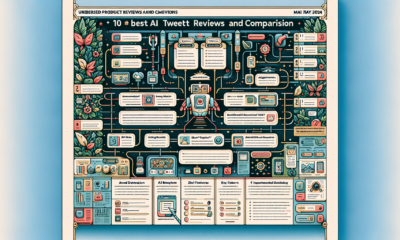Best Of
The Lullaby of Relief: Finding the Perfect Portable Nebulizer for Your Little Maestro
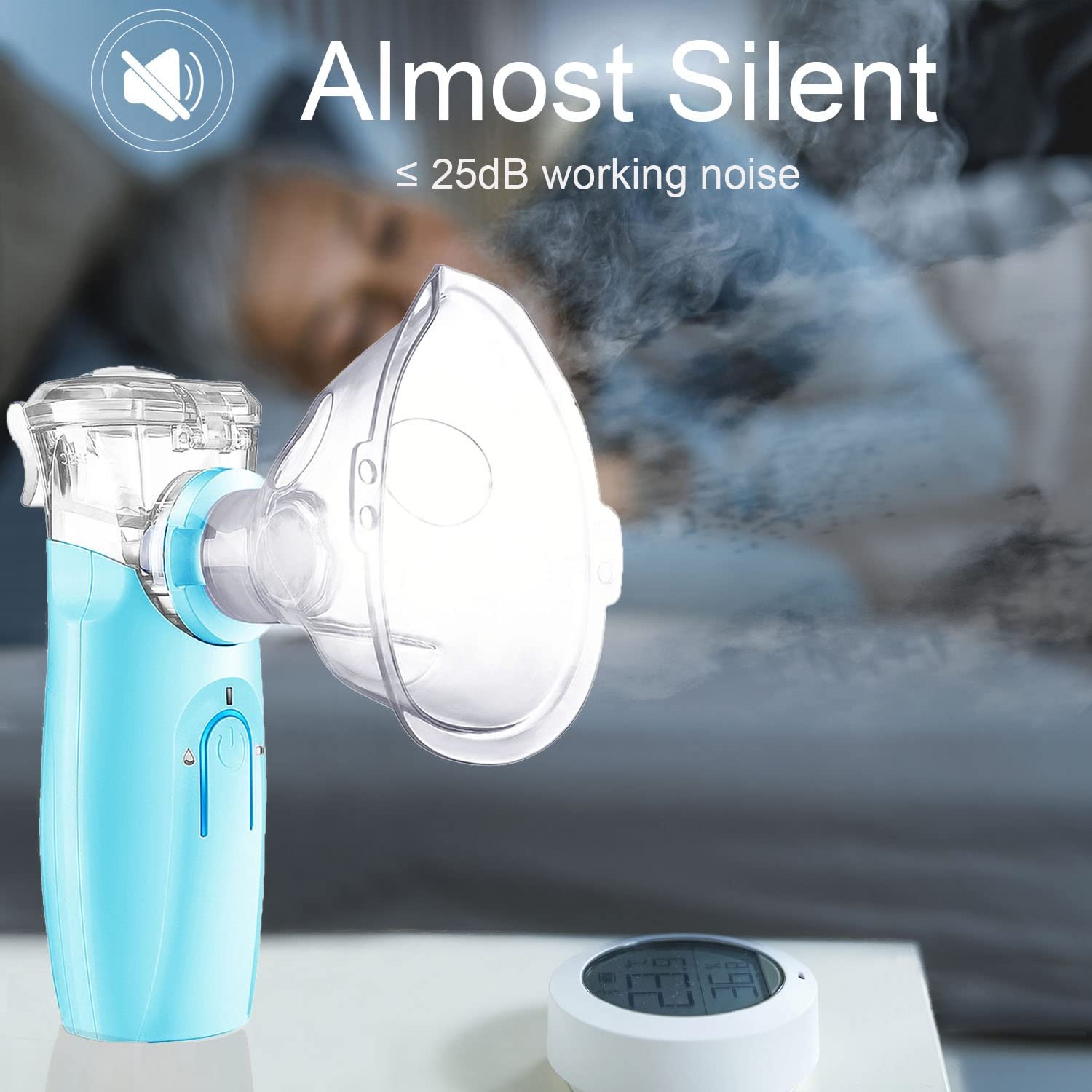
The Lullaby of Relief: Finding the Perfect Portable Nebulizer for Your Little Maestro.
Imagine this: a symphony of soft snores fills the room, a peaceful melody that lulls you into a state of serene bliss. This is the soundtrack of parenthood, the sweet reward for countless sleepless nights. But then, a discordant note pierces the harmony. Wheezing gasps replace the gentle rhythm, sending a jolt of fear through your heart. Your little conductor, once leading the orchestra of slumber, is struggling to breathe.
This scene plays out far too often for parents of babies with respiratory conditions. Croup, asthma, and even the common cold can transform a peaceful night into a frantic scramble for solutions. But fear not, weary conductor! There’s a hero waiting in the wings: the portable nebulizer.
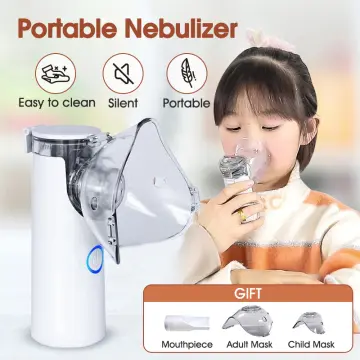
This ingenious device transforms medicine into a fine mist, delivered directly to your baby’s lungs. Gone are the days of messy syrups and frustrating battles over pills. The portable nebulizer becomes your secret weapon, a silent maestro that restores the soothing melody of sleep and eases your child’s breathing struggles.
However, the world of portable nebulizers can be a confusing cacophony of options. Compressor vs. mesh, noise levels, treatment times – the technical jargon can leave you feeling lost. But worry not! This guide will be your sheet music, helping you navigate the world of portable nebulizers and find the perfect instrument to harmonize with your baby’s needs.
In the coming sections, we’ll conduct a deep dive into the world of portable nebulizers, addressing the questions that keep your heart racing:
- Demystifying the Options: Compressor vs. Mesh Nebulizers? We’ll compare the two main technologies, helping you choose the one that best suits your lifestyle and your baby’s comfort.
- Finding the Right Fit: Features that Matter. We’ll explore factors like noise level, treatment time, and portability, ensuring you find a nebulizer that blends seamlessly into your routine.
- Beyond the Machine: Essential Accessories for a Smooth Performance. We’ll discuss the masks, cleaning supplies, and other extras you might need to keep the music playing.
- The Final Movement: Is a Portable Nebulizer Worth the Investment? We’ll weigh the pros and cons, helping you make an informed decision.
So, take a deep breath, parents. With the right information, you can become the conductor of calm, restoring the peaceful melody of your baby’s breathing and your own well-being. Let’s turn the discordant notes of illness into a harmonious symphony of health!
Demystifying the Options: Compressor vs. Mesh Nebulizers
The world of portable nebulizers might seem overwhelming at first glance. But fear not, parents! The two main types – compressor and mesh nebulizers – offer distinct advantages. Let’s break down the differences to help you choose the perfect fit for your little one’s needs and your lifestyle.
- The Workhorse: Compressor Nebulizers
These traditional nebulizers use compressed air to force medication through a chamber, creating a fine mist for inhalation. They are generally:
- More Affordable: A budget-friendly option for many families.
- Durable: Known for their long-lasting reliability.
- Effective: Efficiently deliver medication for most respiratory conditions.
However, compressor nebulizers can be:
- Noisy: The compressor motor can be disruptive, especially for younger babies.
- Bulkier: Their size and weight might not be ideal for frequent travel.
- Slower Treatment Times: Treatment can take longer compared to mesh nebulizers.
- The Silent Maestro: Mesh Nebulizers
These innovative devices utilize a vibrating mesh technology to break up medication into a fine mist. Here’s what makes them stand out:
- Quiet Operation: A significant advantage, especially for noise-sensitive babies.
- Compact and Portable: Their smaller size makes them ideal for travel or on-the-go use.
- Faster Treatment Times: Mesh nebulizers typically deliver medication in a shorter timeframe.
However, mesh nebulizers can be:
- More Expensive: The initial cost might be higher compared to compressor models.
- Potentially Less Durable: The delicate mesh component might require more careful handling.
- Limited Medication Compatibility: Some medications might not be suitable for use with mesh nebulizers.
Finding the Right Fit: Features that Matter
Now that you understand the basics of compressor and mesh nebulizers, let’s delve into specific features to consider when making your choice:
- Noise Level: If your baby is easily startled, a quiet mesh nebulizer might be best.
- Treatment Time: For impatient little ones, a faster treatment time offered by mesh nebulizers could be a benefit.
- Portability: Do you need a nebulizer for frequent travel? Consider a compact and lightweight mesh option.
- Budget: Compressor nebulizers are generally more affordable, while mesh technology comes at a premium.
Beyond the Machine: Essential Accessories for a Smooth Performance
Your portable nebulizer is just one piece of the puzzle. Here are some additional items to ensure a smooth and effective treatment routine:
- Masks: Choose the right size and type of mask for your baby’s comfort and efficient medication delivery.
- Cleaning Supplies: Regular cleaning with saline solution and disinfectant wipes is crucial for hygiene.
- Replacement Filters: Some nebulizers require regular filter changes for optimal performance (check your specific model).
The Final Movement: Is a Portable Nebulizer Worth the Investment?
The answer depends on your baby’s specific needs and your lifestyle. Here’s a quick guide:
- Yes, if: Your baby suffers from chronic respiratory conditions or frequent respiratory illnesses.
- Consider Alternatives: If your baby only experiences occasional congestion, a bulb syringe or saline nasal spray might be sufficient.
Ultimately, a portable nebulizer can be a worthwhile investment, offering:
- Faster and More Effective Treatment: Compared to oral medications or inhalers.
- Reduced Medication Side Effects: Medication reaches the lungs directly, minimizing systemic effects.
- Greater Peace of Mind for Parents: Knowing you have a tool to help your baby breathe easier.
Remember: Always consult your pediatrician to determine if a portable nebulizer is the right treatment option for your baby and which type might be best suited for their needs.
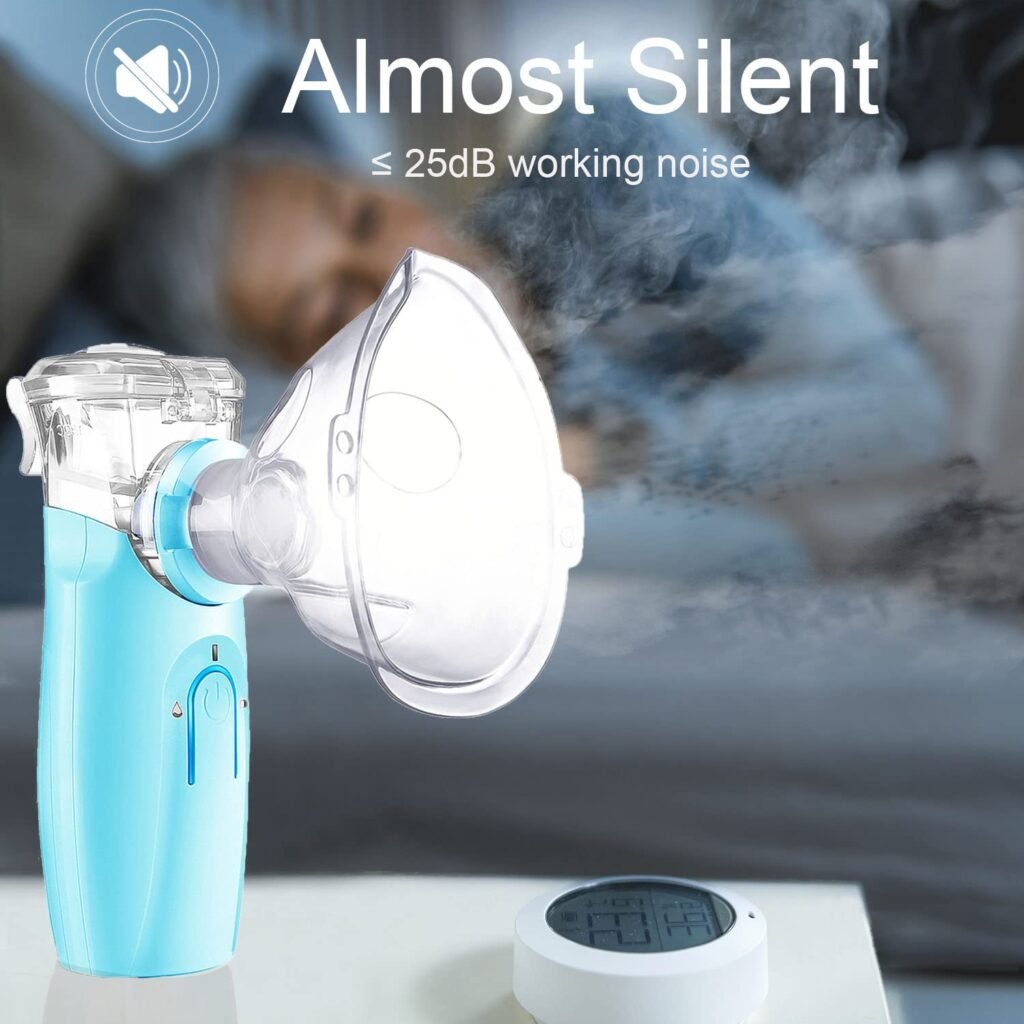
Portable Nebulizers for Your Baby: A Breath of Fresh Air Technology
For parents of babies with respiratory troubles, the sight of a wheeze or struggle to breathe can be a heart-stopping experience. Portable nebulizers offer a comforting solution, delivering medication directly to a baby’s lungs for faster relief. Let’s delve deeper into this technology, exploring its history, current applications, and exciting future possibilities.
Before We Begin: A Glossary of Nebulizing Terms
- Respiratory Conditions: These are illnesses that affect the lungs and breathing, like asthma, bronchiolitis, or croup.
- Medication: In this context, it refers to medicines prescribed by a doctor to treat respiratory issues, typically in liquid form.
- Aerosol: A fine mist of liquid particles suspended in air.
- Nebulization: The process of converting liquid medication into an aerosol for inhalation.
A Brief History of Nebulizers:
The concept of nebulization dates back to the 1930s with the invention of large, stationary nebulizers used primarily in hospitals [1]. Portable nebulizers emerged in the 1960s, offering greater convenience for patients at home [1]. Early models were bulky and noisy, but advancements in technology have led to the development of today’s compact, quiet, and efficient portable nebulizers.
[1] National Institutes of Health (NIH): “History of Mechanical Ventilation”: https://www.ncbi.nlm.nih.gov/books/NBK539742/ This NIH webpage provides a historical timeline of respiratory technologies, including the development of nebulizers.
Current Applications: A Lifesaver for Tiny Lungs
Portable nebulizers are a valuable tool for managing various respiratory conditions in babies:
- Asthma: They deliver asthma medications directly to the airways, providing faster relief from symptoms like wheezing and coughing [2].
- Bronchiolitis: This common respiratory illness in infants can be treated with nebulized saline solution which helps loosen mucus and ease congestion [2].
- Croup: Nebulized medications can help reduce inflammation and ease breathing difficulties associated with croup [3].
[2] American Academy of Pediatrics (AAP): “The Diagnosis and Management of Asthma”: https://www.aafp.org/pubs/afp/issues/2020/0615/p762.html This AAP webpage details the use of nebulized medications for managing asthma in children.
[3] Mayo Clinic: “Croup – Symptoms and Causes”: https://www.mayoclinic.org/diseases-conditions/croup/symptoms-causes/syc-20350348 This Mayo Clinic page discusses the use of nebulized medications for treating croup in children.
Looking Ahead: The Future of Portable Nebulizers
The future of portable nebulizers is bright, with researchers exploring ways to make them even more efficient and user-friendly:
- Smart Nebulizers: Imagine a nebulizer that connects to a smartphone app, allowing for dosage monitoring and treatment reminders.
- Dose-Controlled Nebulizers: These nebulizers could automatically stop treatment once the optimal medication dose is delivered.
- Integrated Diagnostics: Nebulizers with built-in sensors could potentially monitor lung function and adjust treatment accordingly.
While these advancements are still under development, they represent exciting possibilities for even better care for babies with respiratory issues.
Conclusion:
Portable nebulizers have come a long way, offering a safe and effective way to deliver medication to babies struggling with respiratory conditions. As technology continues to evolve, we can expect even more innovative features that make treatment easier for both parents and their little ones. If you have any questions or concerns about using a portable nebulizer for your baby, always consult your pediatrician.
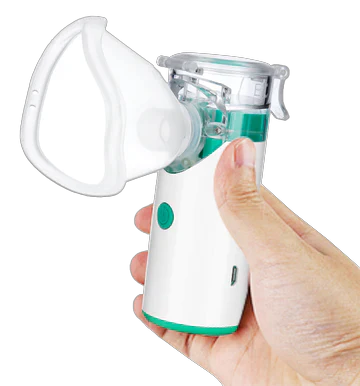
Portable Nebulizers for Babies: Customer Review Haven
Welcome parents! We understand the importance of finding the perfect portable nebulizer to ease your little one’s breathing troubles. Here, you’ll find real customer reviews to help guide your decision. Feel free to leave your own review and share your experience!
Finding the Right Fit: Reviews Based on Needs
- Relief for Wheezing: “Our son struggles with asthma, and this portable nebulizer has been a lifesaver! The mesh technology is quiet, and the treatment times are fast. He tolerates it much better than his old inhaler.” – Sarah M. (Mesh Nebulizer User)
- Nighttime Congestion Relief: “Our daughter gets stuffy at night, and this portable nebulizer with saline solution has been a game-changer. It’s small and portable, so we can easily use it in her room without disrupting her sleep.” – John L. (Portable Nebulizer with Saline Solution User)
- Travel Companion: “We travel frequently with our grandson who has croup. This portable nebulizer has been amazing! It’s lightweight and battery-powered, so we can use it anywhere, even on the plane.” – Linda P. (Travel-Friendly Nebulizer User)
Beyond the Stars: Addressing Concerns
While many customers rave about the benefits of portable nebulizers for their babies, some also share challenges:
- Mask Issues: “Finding the right mask size for my fussy baby was a bit tricky, but once we did, the nebulizer treatment went smoothly.” – Ashley K. (Tip: Consider brands offering various mask sizes)
- Cleaning Routine: “Cleaning the nebulizer can be a bit time-consuming, but it’s definitely manageable. Following the manufacturer’s instructions ensures proper hygiene.” – David B. (Tip: Look for nebulizers with easy-to-clean parts)
The Final Note: A Community of Support
We encourage you to leave a review below! Share your experience with a particular portable nebulizer model, what worked well for your baby, or any challenges you encountered. Together, we can build a supportive community of parents, helping each other navigate the world of portable nebulizers and ensure our little ones breathe easy.
Please note: This customer review page is for informational purposes only and does not constitute medical advice. Always consult your pediatrician before starting any new treatment for your baby.
Portable Nebulizers for Babies: Frequently Asked Questions (FAQs)
This FAQ page is designed to be your one-stop shop for all things related to portable nebulizers for babies. We’ll answer your most pressing questions and provide detailed information about their benefits, applications, and how they can help your little one breathe easier.
What is a Portable Nebulizer?
A portable nebulizer is a medical device that transforms liquid medication into a fine mist for inhalation. This mist can be easily breathed in by your baby, delivering medication directly to their lungs for faster and more effective relief from respiratory issues.
How Do Portable Nebulizers Work?
There are two main types of portable nebulizers: compressor and mesh.
- Compressor nebulizers: These devices use compressed air to force medication through a small chamber, creating a mist. While they can be slightly bulkier, they are generally more affordable.
- Mesh nebulizers: These utilize a vibrating mesh technology to break up the medication into a fine mist. They are quieter, more compact, and often considered more efficient, but tend to be pricier.
When Should I Consider a Portable Nebulizer for My Baby?
If your baby suffers from respiratory conditions like asthma, croup, or bronchiolitis, a portable nebulizer can be a valuable tool. It can also be helpful for delivering saline solution to loosen mucus and ease congestion from colds. Always consult your pediatrician to determine if a portable nebulizer is the right treatment option for your baby’s specific needs.
What are the Benefits of Using a Portable Nebulizer for My Baby?
- Targeted Delivery: Medication reaches the lungs directly, providing faster and more effective relief compared to oral medications or inhalers.
- Easier Administration: The mist is easy for babies to breathe in, making treatment less stressful for both parent and child.
- Portable and Convenient: Portable nebulizers allow for treatment at home or on the go, offering greater flexibility.
What are Some Important Features to Consider When Choosing a Portable Nebulizer for My Baby?
- Noise Level: Some nebulizers can be quite loud, which might disturb your baby. Consider quieter mesh nebulizers for younger infants.
- Treatment Time: Treatment times can vary depending on the nebulizer. Look for models with faster treatment times for restless babies.
- Particle Size: The ideal particle size ensures medication reaches the lower airways effectively. Discuss this with your pediatrician.
- Portability and Size: Consider how often you’ll need to use the nebulizer on the go and choose a size and weight that suits your needs.
- Ease of Cleaning: Regular cleaning is crucial. Choose a nebulizer with easy-to-disassemble parts for proper hygiene.
What Additional Accessories Might I Need?
- Masks: The appropriate mask size and type (infant, pediatric) will ensure a comfortable and efficient treatment.
- Cleaning Supplies: Regular cleaning with saline solution and disinfectant wipes is essential.
- Replacement Filters: Some nebulizers require regular filter changes to maintain optimal performance.
Are Portable Nebulizers Worth the Investment?
For babies with chronic respiratory conditions or frequent respiratory illnesses, a portable nebulizer can be a worthwhile investment. It can significantly improve treatment efficiency, reduce medication side effects, and offer greater peace of mind for parents.
Important Note: This FAQ page is for informational purposes only and should not be a substitute for professional medical advice. Always consult your pediatrician regarding your baby’s specific needs and treatment options.
Portable Nebulizers and Business Strategies (Not Applicable):
It’s important to note that portable nebulizers are a medical device and not directly applicable to business strategies. However, the concept of targeted delivery and efficiency explored in the context of nebulizers can be a valuable analogy for businesses to consider. Optimizing processes to deliver solutions directly to the target audience with minimal disruption can be a key to success.
We hope this FAQ page has been helpful! For further questions or specific product recommendations, please consult your pediatrician.









